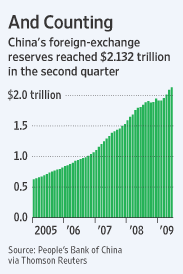The Exception to the
"Golden Rule" - He with the Gold Rules!For the un-initiated there has been somewhat of a saga surrounding the position of Chairman of Bank Hapoalim, previously Israel's biggest bank.
The saga has seen a very public spat between the controlling shareholder of the Bank, Sheri Arison, and Stanley Fischer, Governor of the Bank of Israel.
The core of the argument has been about the suitability of its soon to be replaced Chairman; the direction that the bank has taken; and the governance employed to make those decisions during the last couple of years.
I am not a banking analyst, not an expert in bank regulation etc, but this is not the key.
Stanley Fischer has brought an enormous amount of credibility to the Israeli economy since being appointed in 2005, and is helping to steer Israel through the stormy waters of the global economic crisis.
Sheri Arison, about whom I have nothing particularly good or bad to say on a personal level, has clearly had a very strong difference of opinion with Fischer. She is part of the economic elite of Israel, which is popularly perceived as having too much economics way, in a way that creates significant imbalanaces within the economy to their advantage, and the great disadvantage of the rest of us.
During the campaign Arison went pretty low in her tactics, accusing Fisher and the Bank of Israel of McCarthyism and other conspiracies. In addition she went on to accuse him of corruption and lodge a complaint with the State Comptroller.
This was serious a error of judgment on Arison's part as the clear consensus (other than within the 10 richest families in Israel) is that Stanley is the straightest guy in town, who has done more than most to help navigate the country through the crisis.
Most importantly for Israel was Fischer's ability to stand firm against this onslaught. Had he not done so then it would surely have become open season on sensible independent regulators in the face of our business tycoons as they seek to apply the "Golden Rule" - he with the gold rules!
When I look at this in the context of Israel's overall position in the light of the global crisis, it gives me a high level of comfort that we are better placed than most developed (and many undeveloped economies) in that we are still have an independent, but strongly regulated banking industry that has not gone into meltdown during the last 18 months.
If the global crisis eases during the next few months, Israel is very well placed to take a strong advantage of the coming upturn.


